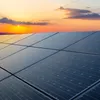SaaS startup SenseHawk is helping solar enterprises improve processes and enhance efficiency
AI-powered SaaS startup SenseHawk’s cloud-based platform and integrated set of applications can help solar companies reduce costs, enhance workforce productivity, and improve on-site performances.
Startups are leading the way as the world switches to renewable energy to combat the effects of climate change.
While several companies are developing solar technologies to help India make the shift, California and Bengaluru-based is approaching things differently. The SaaS startup aims to help solar companies monitor solar plants, streamline processes, and use automation to increase productivity.
Founded in 2018 by Swarup Mavanoor and Rahul Sankhe, the AI-powered SaaS startup offers a cloud-based platform and an integrated set of applications to support everything from solar plant design and construction to operation and maintenance.
Speaking to YourStory, Co-founder and CEO Swarup says prior to starting up, the duo was working for renewable energy company SunEdison where he was responsible for leading the solar irrigation segment while Rahul held the position of Managing Director, India, and Director, Residential Solar Business, Asia Pacific Region.
“Whenever we met, we discussed and realised that we were always caught unaware by problems that occurred at some point in time through our development, construction, and commissioning processes. We never believed we were making optimal choices in terms of acquiring a piece of land or creating a budget. We always used to eat into our contingency budget; the reason was lack of good data, ” Swarup says.
He explains that most data was in “Excel sheets, emails, and people’s minds”. Apart from this, data on the land where panels need to be built was also not available.
The duo decided to solve these problems by tapping technology.
“Our first shot at this was getting data. We started using drones to monitor solar projects. This data was useful for engineers and other people to make decisions. That's how we started SenseHawk,” he says.

SenseHawk was launched in 2018 and it started by using drones to monitor solar projects. The startup also offers cloud-based platform and an integrated set of applications to support solar plant design, construction to operation and maintenance. [Image Credit: SenseHawk]
End-to-end platform for solar asset lifecycle management
Swarup says many of their international clients were more interested in a data analysing solution than the drone monitoring solution to help them make informed decisions about solar projects.
This led the duo to launch the software segment of SenseHawk.
“We decided to build an AI tool that brought together everything solar businesses need – from developing a solar site to construction and through the life cycle. To make it really useful, we needed all data related to construction, terrain management, design layout, material management, legal information, and more on a single platform,” Swarup says.
The AI-powered software helps businesses to take care of site data management, drone data analytics, topography design, layout management, monitoring and reporting, site navigation, drone thermography, and work management.
SenseHawk’s mobile application also supports onsite navigation and allows businesses to easily manage allocated tasks on sites generally spread over thousands of acres.
“Unlike most other tools, our focus is not just on the technical or business side of all processes related to the solar plan. Everything done in a solar plan can be managed on our system. The system is a digital twin/equivalent of a solar site,” the co-founder says.
The founders say leveraging its AI and machine learning application modules can help solar companies reduce costs, enhance workforce productivity and improve solar site performances.
Market outlook and the future
According to Allied Market Research, the global solar energy market was valued at $52.5 billion in 2018 and was projected to reach $223.3 billion by 2026, growing at a CAGR of 20.5 percent from 2019 to 2026.
Mordor Intelligence estimates that the solar power market in India will grow at a CAGR of more than 40 percent between 2020 and 2025 on the back of government policies and the declining cost of the solar module.
Reason enough for multiple startups to solve the solar energy problem.
SenseHawk claims to be working with more than 80 customers to analyse over 28 GW of solar assets in 15 countries.
Rahul, Co-founder and President, said that India is a big market for SenseHawk and over 20 of clients, including Adani Solar, are here
Speaking about the business model, Swarup says the startup works on a hybrid licensing model where each solar project is treated as a separate entity. The average revenue varies depending on the project sizes.
Earlier this month, SenseHawk raised $5.1 million in Series A1 funding led by Alpha Wave Incubation (AWI) and existing investor SAIF Partners. Prior to this, the startup raised $2 million in Series A funding led by SAIF Partners.
The future looks bright as India ramps up its solar dreams. According to Mercom’s India Solar Market Leaderboard 2020 report, a total of 7.3 GW capacity solar installations were recorded in 2019, pushing India’s total installed capacity to more than 35.7 GW.
The SenseHawk co-founders say they will now focus on expanding the startup’s geographical presence to Abu Dhabi and target the Gulf Cooperation Council (GCC) countries, the Middle East and North Africa (MENA), and other global markets.
The startup also aims to ramp up its talent pool, and build a team of data scientists, product managers, and engineers in Abu Dhabi.
“We are also looking to come up with offerings beyond the solar segment and work with road infrastructure, power transmission, and construction industries,” Rahul says.
Edited by Teja Lele








